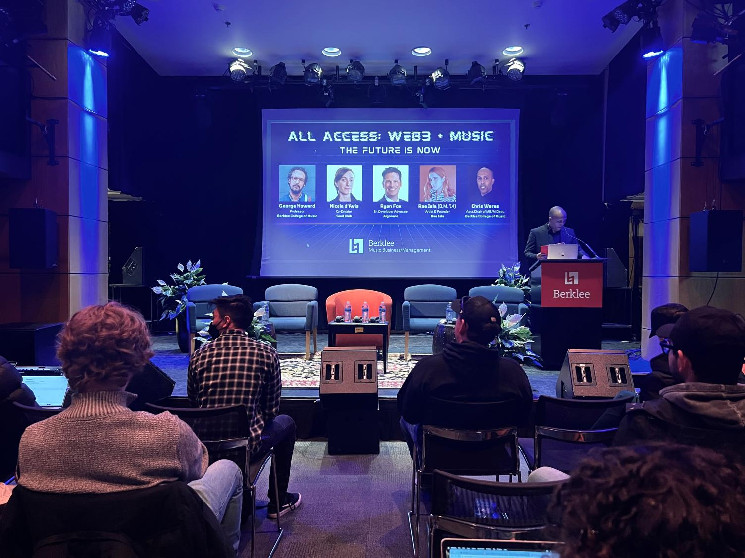The NEAR Foundation, a nonprofit organization committed to advancing the growth of the NEAR blockchain ecosystem, has joined forces with Berklee College of Music, a global leader in contemporary music and performing arts. Together they are introducing an app called RAIDAR (Rights and Asset Information in Decentralized, Authoritative Repositories), designed to revolutionize the way musicians and creators navigate the world of music licensing.
—
RAIDAR, conceived at Berklee under the leadership of professors George Howard and Andrea “Ani” Johnson, uses NEAR’s blockchain technology, known for its rapid scalability and cost-effectiveness. This innovative app aims to create a marketplace where musicians can seamlessly upload their music, complete with metadata, while allowing potential users, whether filmmakers, game developers, advertisers or others, to effortlessly license this wealth of musical talent.
What sets RAIDAR apart is its commitment to ensuring creators receive credit and economic value for their musical works, all transparently recorded on the NEAR blockchain via smart contracts.
How RAIDAR works
Using RAIDAR is simple. Musicians upload their music and associated metadata via an easy-to-use web app, accessible on both desktop and mobile devices. Each song is represented by a secure smart contract and assigned to the creator’s digital wallet as an asset or NFT, allowing creators to effortlessly showcase their musical talents.
For music lovers who want to license songs, RAIDAR offers an extensive music catalog. Users can explore, search, filter and view songs uploaded by fellow creators, then purchase single-use licenses directly through the app.
The app’s smart contract ensures that the revenue from these transactions is distributed directly to the song creator. Upon completion of purchase, users will receive an email with the download link for the song and a copy of the license agreement.
“This is the first product of its kind that will help democratize the music world by putting creators first and ensuring they are always rewarded and protected from exploitation for their original work.”
George Howard, professor of music business at Berklee
“Those looking to license music for their projects now have the opportunity to access and support new creators by tapping into an exciting marketplace through the RAIDAR app, which is easy to navigate and provides a secure and reliable way to to pay for music,” Professor Howard added.
RAIDAR plays a central role in Berklee’s Center for Innovation and Impact, a project that plans to launch next summer. Professor Tonya Butler, chair of Berklee’s Department of Music Business/Management and managing director of the Center for Innovation and Impact, emphasized the importance of NEAR’s support in this endeavor.
RAIDAR will serve as an educational tool that will introduce students to emerging technologies while collaborating with professionals from the music, entertainment and technology industries.
The future of music licensing
Chris Donovan, CEO of the NEAR Foundation, commented: “We are extremely excited to work with Berklee to support a new and unique use case that will bring real value to those who use it. The RAIDAR app is a disruptive technology built on NEAR that will help students explore the power of smart contracts to ensure they are paid fairly for their work, and make the music world more inclusive, secure and exciting for everyone.”

